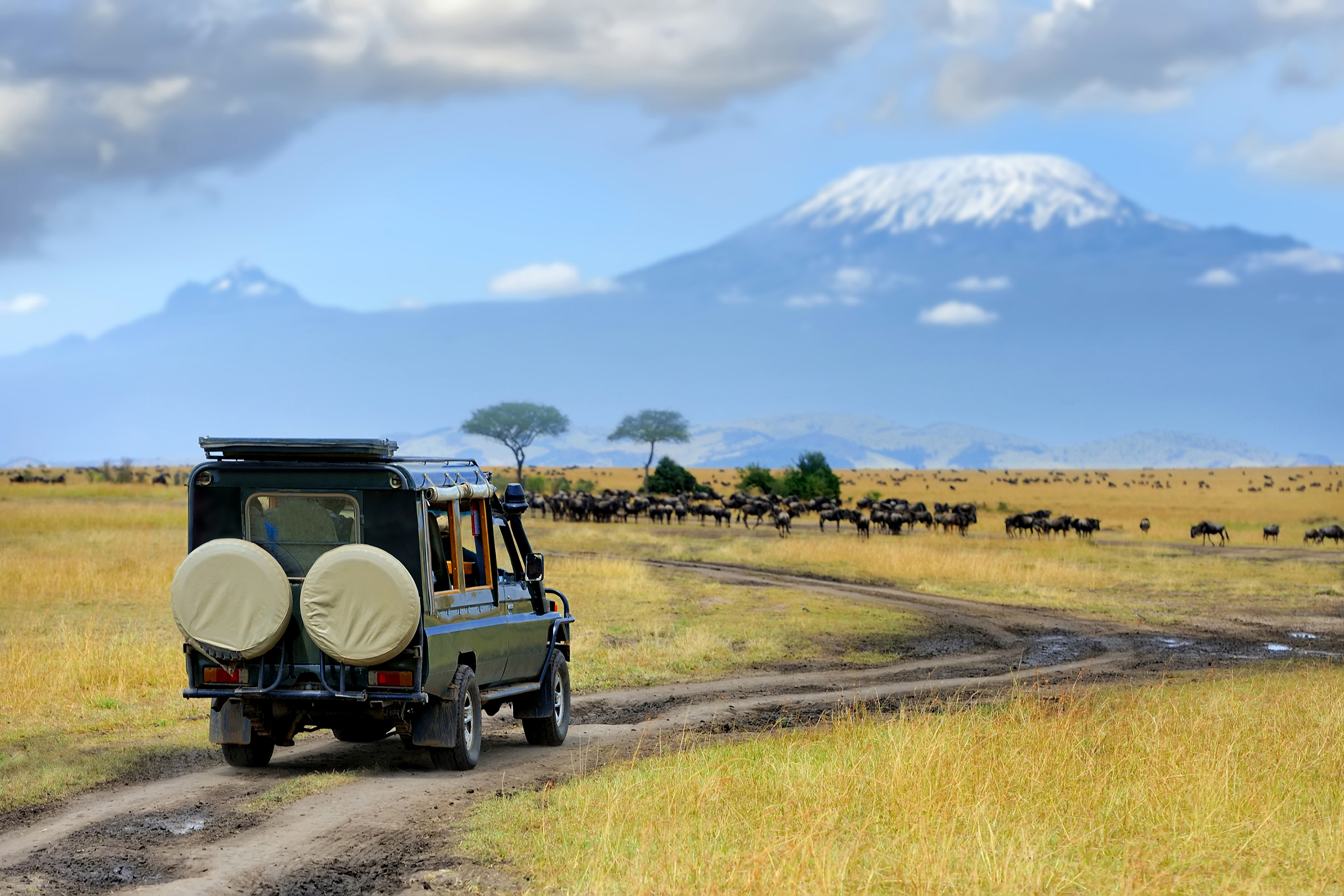This article is reviewed regularly (on a bi-weekly basis) by Wego’s editorial team to ensure that the content is up to date & accurate.
Updated 3 June 2022
After being confined to their homes for a year, travellers around the world are now seeing a glimmer of hope. With many countries easing their restrictions and a few jettisoning them altogether, holiday plans don’t seem that far down the lane.
Can Indians travel now? Where can they fly to? Which countries are welcoming Indians? Read on to find out.
Table of Contents
Can Indians travel right now?
Yes, they can. The suspension of scheduled international passenger flights in the country has been removed from 27 March 2022, as announced by the Directorate General of Civil Aviation (DGCA). Since then, regular international travel in India have mostly resumed.
Moreover, India has removed all testing and quarantine requirements for vaccinated travellers (from certain countries) flying to India. Thus Indians can freely travel and return back without having to go through tedious process of pre-travel testing and isolation measures.
Where can Indians travel?
Several countries are now opening up to international visitors, relying on testing and quarantine requirements. Keep in mind that quarantine and airport testing may be required upon return, depending upon the destination you’re returning from.
The Americas and Caribbean

No quarantine required
- Argentina. International travellers only need to submit a sworn statement and medical insurance including COVID-19 coverage to visit the country.
- Aruba. All travellers are no longer required to present a COVID-19 negative test result or proof of vaccination. All travelers are still required to complete Aruba’s Embarkation/Disembarkation Card before arrival, which is the country’s digitized customs and immigration process. Aruba Visitors Insurance is still required for all visitors.
- Belize. Either a negative PCR test result taken 72 hours prior to arrival in Belize or proof of having received two full doses of a COVID-19 vaccine is required.
- Brazil. If you are fully vaccinated, you do not need to take a COVID-19 test to enter Brazil. Most people aged 12 or older travelling to Brazil, will need to present a vaccination certificate to the airline before boarding and during travel.
- Bonaire. All travelers must complete a Public Health Department health declaration form online between 24 hours and 12 hours before departure. This declaration can be downloaded at: https://www.bonairepublichealth.org. At check-in, boarding and arrival, travelers must present the health declaration.
- Chile.
- Fill in the “Travel Affidavit” form online up to 48 hours before boarding, providing contact information and health and travel records. This form will display a QR code as a means of verification. It is available at www.c19.cl.
- Have health insurance with a minimum Covid-19 coverage of USD 30,000 (mandatory for non-residents). Medical insurance will not be required for Spanish citizens, as long as they carry their Temporary Displacement (E/CHL-11) and Residence (E/CHL-9) forms.
- Diagnostic tests will be carried out randomly at the entry point to Chile. Confirmed cases shall be isolated according to the general health regulations (declared domicile in the C19 or Sanitary Residence).
- Colombia.You will be required to show an onward or return ticket valid within the 90 day period allowed for their entry into Colombia as a visitor. Between 24 hours and 1 hour before departure, you must fill out the ‘Check-Mig’ form, available on the Migración Colombia website. You will receive a confirmation email that you will need to present upon arrival in Colombia.
- Costa Rica. The Government of Costa Rica does not require tourists entering by air, land or sea to present a negative COVID-19 test, nor quarantine upon arrival.
- Cuba. Travellers may enter freely provided they fill out a form and consent to the possibility of a random PCR test upon arrival.
- Curaçao. Prior to departure, all visitors must follow these mandatory steps on dicardcuracao.com:
- No COVID testing is required before traveling to Curacao.
- Complete the digital immigration card online before departure.
- Digitally fill out the Passenger Locator Card (PLC) 48 hours prior to your departure and carry a printed or digital document of proof with you.
- Dominican Republic. No restrictions like PCR test certificates or mandatory quarantine.
- El Salvador. There are currently no COVID-19 restrictions in place for arriving travellers.
- Grenada. All COVID-related entry requirements have been dropped.
- Mexico. Mexico remains open to travellers, however. There is no need to provide a negative PCR test or quarantine on arrival, though most resorts ask guests to fill out health questionnaires. There are health screenings at airports.
- Jamaica. Testing requirements and mask mandates are no longer in effect. However, travellers may be screened for symptoms at the airport.
- St. Kitts & Nevis. If you are not a St Kitts and Nevis national or resident, you must be fully vaccinated to enter St Kitts and Nevis. Non-vaccinated adult visitors will not be permitted entry to St Kitts and Nevis. All travellers, including returning nationals, tourists or international travellers must submit either a Rapid Antigen negative test result taken 1 day prior to arrival, or a COVID-19 PCR test taken within 72 hours of travel,
- Turks and Caicos. Turks and Caicos is open for tourism. All travellers aged 18 and above must be fully vaccinated against COVID-19 to enter the Turks and Caicos. The requirement for pre-travel authorisation (TCI Assured) is no longer required. The requirement for travel insurance and a negative COVID-19 test has also been dropped. Your vaccination status will be checked by your airline at check-in and on arrival in the Turks and Caicos by immigration officials.
- The USA. Fully vaccinated travellers are exempted from quarantine. They are however required to show a negative COVID-19 viral test result taken no more than 1 day before travel
Africa

No quarantine required
- Cape Verde. No quarantine required. It’s not mandatory to present a Covid certificate at the moment of check-in to Cape Verde. To travel between Islands, in Cabo Verde, you can present the valid COVID certificate or test you took with negative result for COVID-19. All travellers need to fill ease.gov.cv, register and pay the airport fee.
- Djibouti. Vaccinated travellers will not be subjected to quarantine but are still required to provide a negative PCR test. The test must be taken within 72 hours of the start of the journey and 120 hours of arrival in Djibouti. On arrival you will be required to take an additional COVID-19 test at the airport for which you will pay $30. Unvaccinated travellers will be made to quarantine for 10 days.
- Egypt. You will need to have a COVID‑19 vaccination certificate or a negative COVID‑19 RT PCR test certificate taken 72 hours prior to travel. Passengers from all countries will be required to complete a paper health declaration (issued by your airline or on arrival) with personal details, and may need to provide confirmation of valid health insurance policy to airport authorities.
- Ethiopia. Vaccinated arrivals are exempt from testing. Travelers without a certificate of full vaccination must present a negative COVID-19 test before boarding a flight. The test must be:
- PCR test taken at most 72 hours before departure from the first embarkation point
- Rapid Antigen Test taken at most 24 hours before departure from first embarkation point
- COVID-19 recovery certificate issued at most 90 days before arrival
Children under 12 are exempt from testing requirements.
- Ghana. All travellers aged 18 years and over are required to provide evidence of being fully vaccinated against COVID-19 at the point of embarkation and upon arrival into Ghana.There is no pre travel or on arrival testing or quarantine requirement if you are fully vaccinated.
- Kenya. All passengers coming to Kenya must be in possession of a valid COVID-19 negative PCR test certificate conducted within 96 hours before travel. All travelers will be expected to fill the travelers’ locator form and submit before travel to and thereafter submit daily health information to jitenge platform for 14 consecutive days.
- Lebanon. Fully vaccinated passengers who have received 2nd or 3rd dose or one complete dose of vaccine (which is formed of one dose only) of any COVID-19 vaccine since a period not exceeding 6 months are exempt from testing and quarantine. Children under the age of 12 are also exempt.
- Mauritius. Vaccinated travellers do not need to present a negative PCR test before flying to Mauritius. They will need to test on arrival in Mauritius. You can explore the island after you receive a negative result from your antigen test on day 0
- Seychelles. All travellers to Seychelles must have certification of vaccination against COVID-19 and are exempt from testing and quarantine.
- Somalia. A negative COVID-19 negative test, taken no more than 72 hours before travel, is required for entry into Somalia.Fully vaccinated travellers with proof of vaccination issued by a legitimate and competent authority are exempt from this requirement.
- Uganda. If you are fully vaccinated (and for children under the age of 6) you are now able to enter Uganda via air and land border points without showing a negative COVID-19 PCR certificate. You will be required to show evidence that you are fully vaccinated.
Asia

No quarantine required
- Indonesia (Bali). Foreign travellers must show a negative RT-PCR test result in the country or region of origin which samples were taken within a maximum period of 2 x 24 hours before the departure time. Fully vaccinated travellers need not quarantine. All unvaccinated travellers (Indonesian citizen and Foreign citizen) are required to quarantine with the following categories:
- Quarantine period 5 x 24 hours for those who have not been vaccinated or have received first dose of vaccination.
- Quarantine period for minor under 18 years or required exceptional protection is followed the provisions of the parents/legal guardians/travel companions.
- Mongolia.If you’re fully vaccinated, you can enter Mongolia without needing to test or quarantine. All passengers are required to fill out medical declaration forms upon arrival at border checkpoints.
- Singapore. Fully vaccinated UAE travellers do not have to undergo quarantine. Travellers must present proof of vaccination and must submit an electronic health declaration.
- Thailand. The Thai authorities have decided to lift all testing and quarantine requirements for vaccinated travellers starting 1 May 2022. The minimum COVID-19 medical insurance coverage has also been reduced to USD 10,000.
- Sri Lanka. Fully vaccinated travellers can enter Sri Lanka without testing and quarantine.
Europe

No quarantine required
- Austria. Passengers entering Austria can travel freely to Austria with proof of vaccination or proof of recovery or a negative COVID‑19 test result.
- Bosnia and Herzegovina.You don’t need to provide your vaccination status for entry to Bosnia and Herzegovina.
- Bulgaria. As of May 1, 2022, all COVID-19 entry restrictions are lifted. Travelers arriving to Bulgaria no longer must provide COVID-19 related documents to enter the country.
- Croatia.Travellers are no longer required to complete an online entry form before arriving in Croatia. Travellers are no longer required to show a COVID-19 vaccine certificate, proof of a negative test, or a certificate of recovery to enter Croatia.
- Cyprus.From 18th April ’22, Cyprus no longer requires the completion of passenger locator forms (Cyprus Flight Pass) for entry into the country. Moreover, it removes country-categorisation and all travel-related COVID protocols.
- Czech Republic. All COVID-19 entry requirements for people arriving from other countries have been lifted. Travellers will no longer be required to fill in arrival forms or produce proof of vaccination.
- Denmark. There are no COVID-19 related requirements regarding tests or self-isolation when entering the country
- Estonia. No tests and no isolation is required for both vaccinated and unvaccinated travellers from the UAE.
- Georgia. There are no restrictions for travel to, from, or within Georgia.
- Hungary. All COVID-19 restrictions on entering Hungary have been lifted. Hungary does not require any COVID-19 vaccination proof, or a negative test result to enter the country, regardless of your vaccination status.
- Iceland. There are no COVID-19 related travel restrictions for Iceland.
- Ireland. There are no COVID-19 related travel restrictions for Ireland.
- Italy. From June 1, all travellers, regardless of their country of origin, will no longer be required to hold a valid vaccination, recovery, or test certificate when reaching Italy.
- Latvia. Currently, no high-risk countries are currently designated. Thus entry restrictions for all travellers have been lifted.
- Liechtenstein. There is no test or quarantine requirement at present for entering Liechtenstein, and people entering do not have to fill out an entry (passenger locator) form.
- Malta.Travel to Malta will only depend on the immunity of the person, and for this reason, a recognised valid vaccine certificate/a recognised valid COVID-19 recovery certificate/Negative PCR Test taken not more than 72 hours prior to arrival/Negative Rapid Test taken not more than 24 hours prior to arrival – will still be required for travel to Malta, with children aged 6 or younger being exempt from presenting any of the above-mentioned documents. If either of these documents are not presented upon arrival, a 10-day mandatory quarantine will apply, which is reduced to 7 days following a negative test.
- Moldova. No COVID-19 documentation is required to enter Moldova.
- Montenegro. You do not need to provide your vaccination status or a negative test result for entry to Montenegro.
- Norway. No testing, quarantining, or registration is needed for entry.
- Poland. There is no longer a requirement to demonstrate your vaccination status on arrival. Pre-departure tests are no longer required for travellers arriving from non-Schengen countries.
- Romania. All COVID-related restrictions and requirements have been lifted.
- Serbia. All COVID-related restrictions and requirements have been lifted.
- Slovenia. All COVID-related restrictions and requirements have been lifted.
- Slovakia. The country has dropped all testing, vaccine, and quarantine requirements.
- Sweden. There are no COVID-19 related requirements regarding tests or self-isolation when entering the country
- Switzerland. There is no test or quarantine requirement at present for entering Switzerland, and people entering do not have to fill out an entry (passenger locator) form.
- Turkey. All incoming passengers over the age of 6 must complete a “Traveler Entry Form” at least four days before their arrival in Turkey. Children under 6 are exempt. Fully vaccinated travellers are exempt from testing.
- The United Kingdom. Whether you are vaccinated or not, while entering the UK, you do not need to:
- complete a UK passenger locator form before you travel to England from abroad
- take any COVID-19 tests before you travel or after you arrive
- quarantine when you arrive
Middle East

Quarantine not required
- Bahrain. No need to present a PCR certificate before boarding a plane for passengers arriving in the kingdom of Bahrain.
- Jordan. All travellers, whether vaccinated or not need not bring a negative PCR test from the country of departure. Visitors to Jordan are required to fill out this declaration form and obtain the free QR code that shall be presented upon boarding.
- United Arab Emirates.All Indian travellers must fulfil one of the below requirements:
- Present a valid vaccination certificate(s) reflecting that the passenger is fully vaccinated with a vaccine approved by the WHO or the United Arab Emirates (UAE), and includes a QR code
- Present a valid negative COVID‑19 PCR test certificate issued within 48 hours after the sample was collected and issued by an approved health service provider with a QR code
- Present a valid medical certificate with a QR code issued by the relevant authorities that the passenger has recovered from COVID‑19 within 1 month from the date of recovery to the date of arrival
- Saudi Arabia. Saudi Arabia now allows the entry of both vaccinated and unvaccinated travellers into the country, without testing and quarantine measures.
Quarantine required
- Qatar. Fully vaccinated passengers must submit a negative pre-travel PCR lab result obtained no more than 48 hours before the time of departure and quarantine at a hotel for 1 day. They must undergo a Rapid Antigen Test on day 1 of hotel quarantine. Entry is denied to unvaccinated travellers from India.













